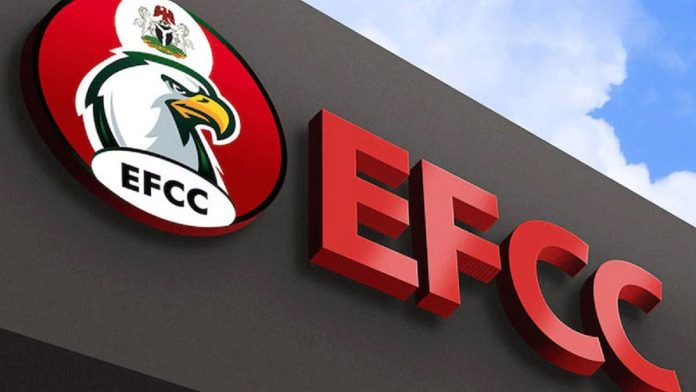The Senate Committee on Anti-Corruption and Financial Crimes has pledged to raise the budgetary allocation for the Economic and Financial Crimes Commission (EFCC), enhancing its capacity to tackle corruption and financial crime in Nigeria.
Speaking during an oversight visit to the EFCC headquarters in Abuja on Monday, the committee chairman, Senator Emmanuel Udende, underscored the need for additional funding to support the commission’s operations. “The EFCC requires more funding to perform its duties effectively,” Udende stated, referencing a N3.4 billion software request by the EFCC to combat cryptocurrency-related fraud.
In a bid to sustain the agency’s efforts, Udende suggested that the EFCC should receive a percentage of its recovered assets, similar to the Nigeria Customs Service, which retains a portion of its seizures to support its operations. “If we allow the EFCC to work from the proceeds of crime they recover, it will enhance their financial independence and operational efficiency,” he said.
EFCC Chairman Ola Olukoyede urged the Senate to support a 300 percent increase in the commission’s 2025 budget, citing the need for advanced technology to curb illicit financial flows and economic sabotage. Olukoyede highlighted inadequate funding as one of the agency’s primary challenges, stressing that substantial financial resources are required to carry out its mandate effectively.
Olukoyede also sought legislative support to improve public perception of the EFCC, which he noted has been affected by misinformation. The EFCC, he said, is actively investigating the extractive industry and will soon bring charges against individuals implicated in corrupt activities.
As part of its expanded mandate, the EFCC recently gained access to the Integrated Personnel and Payroll Information System (IPPIS) to monitor government disbursements and prevent misuse of public funds. Olukoyede announced that the commission now has authority to track fund allocations, including monitoring of lawmakers’ constituency projects, and called for the senators’ cooperation in this transparency initiative.
“We now have a partnership with the Accountant General’s Office, allowing us access to IPPIS to track fund releases,” Olukoyede informed the committee. “We will be monitoring constituency projects to ensure transparency, and we hope the distinguished members of the Senate will support us in this effort.”
With the Senate committee’s backing for increased funding, the EFCC’s ability to execute its anti-corruption agenda may see notable improvement in the coming year.











